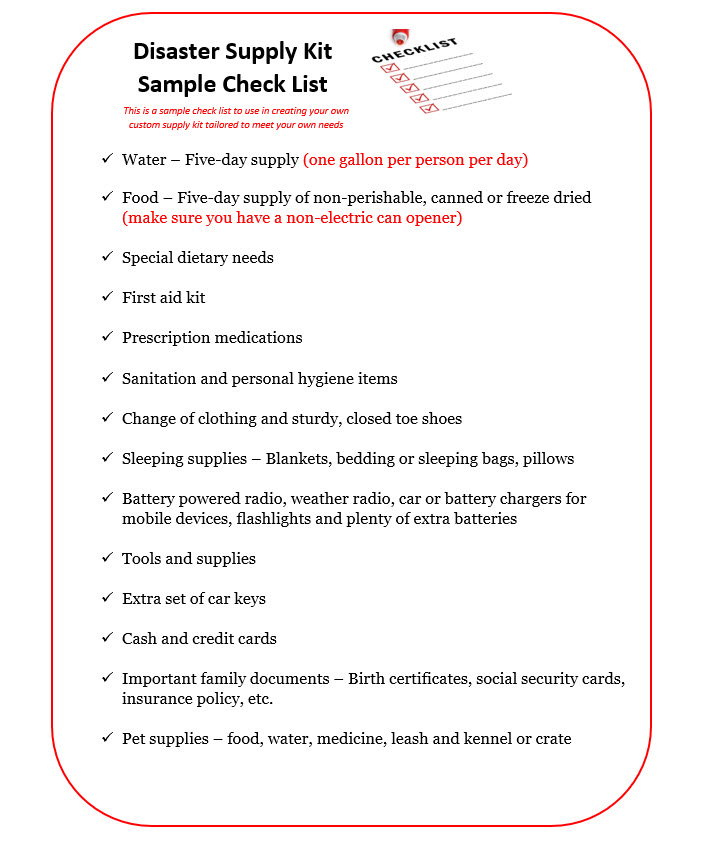Creating an Emergency Plan for Yourself and Your Family
An involved community is a prepared community, but knowing what to do during a catastrophic event is not only your best protection but your responsibility as well. No matter what type of event occurs, it is prudent to assume that basic services such as water, electricity, phones and gas may be disrupted for a period of time. Generally, these services are restored first to public facilities such as hospitals, water plants, fire stations, etc.
To best survive a disaster, you should create a plan ahead of time that includes:
- Informing yourself about the types of catastrophic events that could affect you, your family, and property in the area in which you live.
- Teaching members of the family basic safety skills such as CPR and first aid, and making sure you have a fire extinguisher on hand and know how to use it.
- Find the safest room in your home, which may vary depending on the type of event about to occur.
- Make sure you have emergency numbers and website links handy and stored in multiple locations. Everyone in the family should know how to dial 911.
- Know how to turn off utilities, such as gas, electricity and water valves and switches.
- Have important documents located and stored in watertight bags within a fireproof safe. Consider scanning all your important documents and keeping them on a USB flash drive or another secure location other than at their primary storage location.
- Determine how your family will communicate, if separated, during different types of emergencies.
- Have a plan for evacuating your home in case of a fire, and practice day and nighttime fire drills. Take into consideration supplies needed for multi-story residences.
- And, just as important, make sure you have a plan to care for your furry friends and other pets, their needs matter too!


